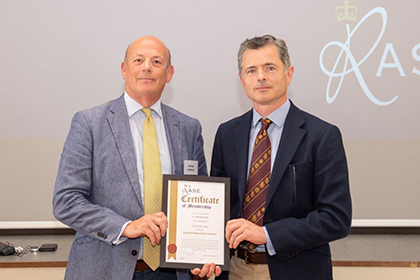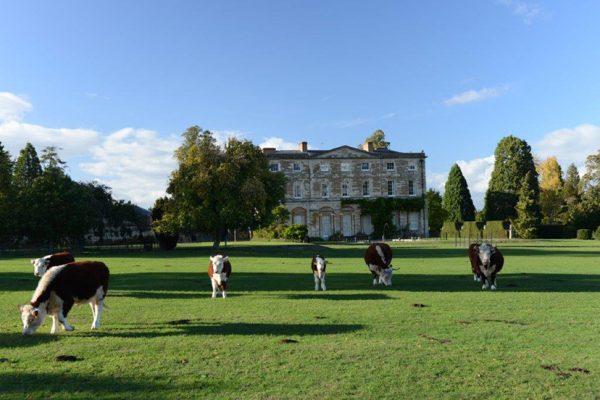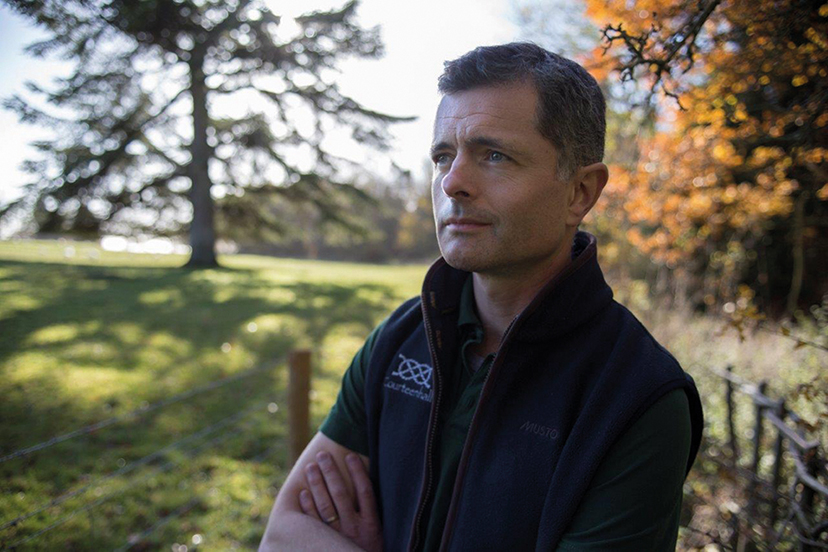COMMUNITY, LEGACY and sustainability lies at the heart of every decision made at Courteenhall Farms in Northamptonshire. Alongside its traditional activity farming beef and arable crops is a pioneering energy portfolio and a business that is leading the way on carbon reduction in the agricultural sector
The business has changed markedly in the past decade since Dr Johnny Wake (pictured) left his career to take over the running of the farm that has been in the family for more than three centuries. And such has been the progress that Dr Wake is one of six recipients of the Bledisloe Gold Medal, presented to those making outstanding contributions to farming for food, people, the environment and profit at the annual Royal Agricultural Society of England’s Awards Day held this year at the Royal Windsor Estate.

Dr Wake’s family has been in South Northamptonshire since the 13th century and has farmed at Courteenhall, near Roade, for over 350 year. “It is a real honour to be awarded the Bledisloe Gold Medal for Landowners and it is a testimony to the hard work of the whole team at Courteenhall,” he says.
“We are a family-run business committed to farming as sustainably as possible, working with and protecting the environment and pushing the boundaries so we can be at the vanguard of positive change.”
Since his arrival as managing partner, the estate has brought in a range of diverse and sustainable practices, investing in cutting-edge technology, increasing biodiversity and soil health, maximising its use of natural fertilisers and reintroducing traditional Hereford cattle and rare breed sheep.
“We have a long and proud legacy to preserve and we are passionate about supporting the local community and protecting the environment for future generations,” says Dr Wake.
Other projects at Courteenhall Farms include renewable energy technology including multiple ground and air source heat pumps and solar thermal arrays, a rainwater harvest system and taking part in two pilot schemes to improve soil carbon.

Courteenhall estate, near Roade.
Dr Wake, a Deputy Lieutenant of Northamptonshire, also sits on the Country Landowners Association’s national policy committee and is a committee member of Wildlife Farms and Estates England.
RASE chief executive David Grint says: “Dr Wake puts community, sustainability and legacy at the heart of every decision made, demonstrating an exceptional model of best practice and one which sets examples for estates across the whole of England.”



